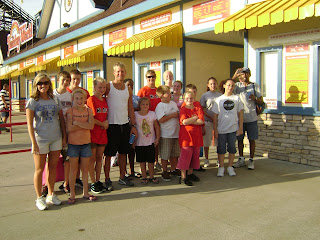Commentary: Obama's high-tech edge in presidential politics
Story Highlights
By Leslie Sanchez
CNN Contributor
Editor's note: Republican Leslie Sanchez was director of the Bush White House Initiative on Hispanic Education from 2001 to 2003 and is the author of "Los Republicanos: Why Hispanics and Republicans Need Each Other." She is not a paid consultant to any current candidate. Sanchez is CEO of the Impacto Group, which specializes in market research about women and Hispanics for its corporate and nonprofit clients.
(CNN) -- In 1840, a young Whig organizer named Abraham Lincoln wrote the guidebook on political field work. His "confidential" circular advised Whig campaign operatives to "make a perfect list of all the voters and ascertain with certainty for whom they will vote."
Almost 170 years later, Democratic presidential candidate Barack Obama's campaign is demonstrating the wisdom of Lincoln's counsel.
Computers have long since replaced the 3 by 5 cards that for generations were the stock-in-trade of precinct captains in both political parties -- green cards for voters who supported your candidate, red ones for those opposed and white cards for the undecided. Every campaign needed to persuade the white cards, get out the green cards on Election Day, and keep a close watch on turnout by the red cards.
Marrying creative marketing techniques with state-of-the-art technology, Obama has taken the voter identification process to lengths nobody could have anticipated just four years ago.
By choosing to announce his vice presidential running mate using text-messaging, Obama's campaign obtained the e-mail addresses, cell phone numbers and text addresses of untold millions of likely voters. The campaign still won't say how many voters they've added to their database, but you can bet these folks will receive periodic campaign updates, requests for donations and reminders to vote on November 4.
At Obama organizing meetings and events, volunteers collect information on where the participants live, their phone numbers, e-mail addresses and their text addresses.
Thursday night, Obama's virtual campaign took the process to the next step. It turned the Invesco Field speech into one big organizing tool. Doors opened at 1 p.m., hours before the speech, to allow the campaign to hold workshops on how to use text-messaging and the Internet to recruit friends and relatives as supporters.
They also have been determined in the way they have exploited this advantage thus far.
For example, Abe Adelaja, a Washington-based veteran of the Iraq war who signed up for Obama's campaign via a text message in anticipation of the vice presidential announcement, told me he has received six text messages since August 12.
In those messages, the campaign asked him to text back his ZIP code, his name and the town he lived in, to start spreading the word about Obama's activities and most recently, a call to donate at least $5 to the American Red Cross to aid Hurricane Gustav relief efforts.
What this means is that the Obama campaign has found a way to coax out a more detailed voter profile, which it can then use to mobilize voters in critical states on Election Day.
The technique has already been used to counter potentially unfavorable publicity about Obama. A text message sent to his supporters directed hundreds of phone calls to a Chicago radio show where host Stanley Kurtz, a conservative writer, was discussing possible ties between Obama and Bill Ayers.
Ayers was a 60's-era activist and former leader of the radical violent organization known as the Weathermen. Obama's campaign has condemned the acts of the group and pointed out Obama was 8 years old when Ayers and the Weathermen were active.
Zack Christenson, executive producer of the radio show, "Extension 720 with Milt Rosenberg," was quoted in a Chicago Tribune blog as saying, "This is the biggest response we've ever got from a campaign or a candidate. This is really unprecedented with the show, the way that people are flooding the calls and our e-mail boxes."
Obama's database grows exponentially day by day and will give Obama a critical asset in the last 60 days of the campaign. To date, the campaign of Republican candidate John McCain seems unable to match its power. It has launched a social networking node on its "McCain for President" Web site and is reaching out to younger voters through its "Generation 08" online initiative, but these efforts pale in comparison to what Obama has already accomplished.
In one of the most radical changes in the American lifestyle, people today don't leave home without checking to make sure they've brought their cell phones. There are more than 200 million cell phone users in the United States, making the potential for mobile phones as a campaign tool enormous and unprecedented.
The voters on Obama's cell phone, e-mail and text-messaging lists can be contacted instantly, wherever they are. This will allow him to stay ahead of negative news stories and in a close race, it might make all the difference.
Obama's virtual campaign may provide a particularly effective tool to make inroads among Hispanic voters where -- in the primaries at least -- he was perceived to be weak.
Hispanics have embraced mobile phones and services faster than any other group, representing the fastest-growing segment of the wireless market, with 52 percent of Hispanics saying they text in any given month, compared to just 28 percent of the general population, according to a mobile usage study by Solutions Research Group.
Time will tell just how effective Obama's virtual campaign will be.
One thing is already certain: Barack Obama has changed the way American politics is played.



